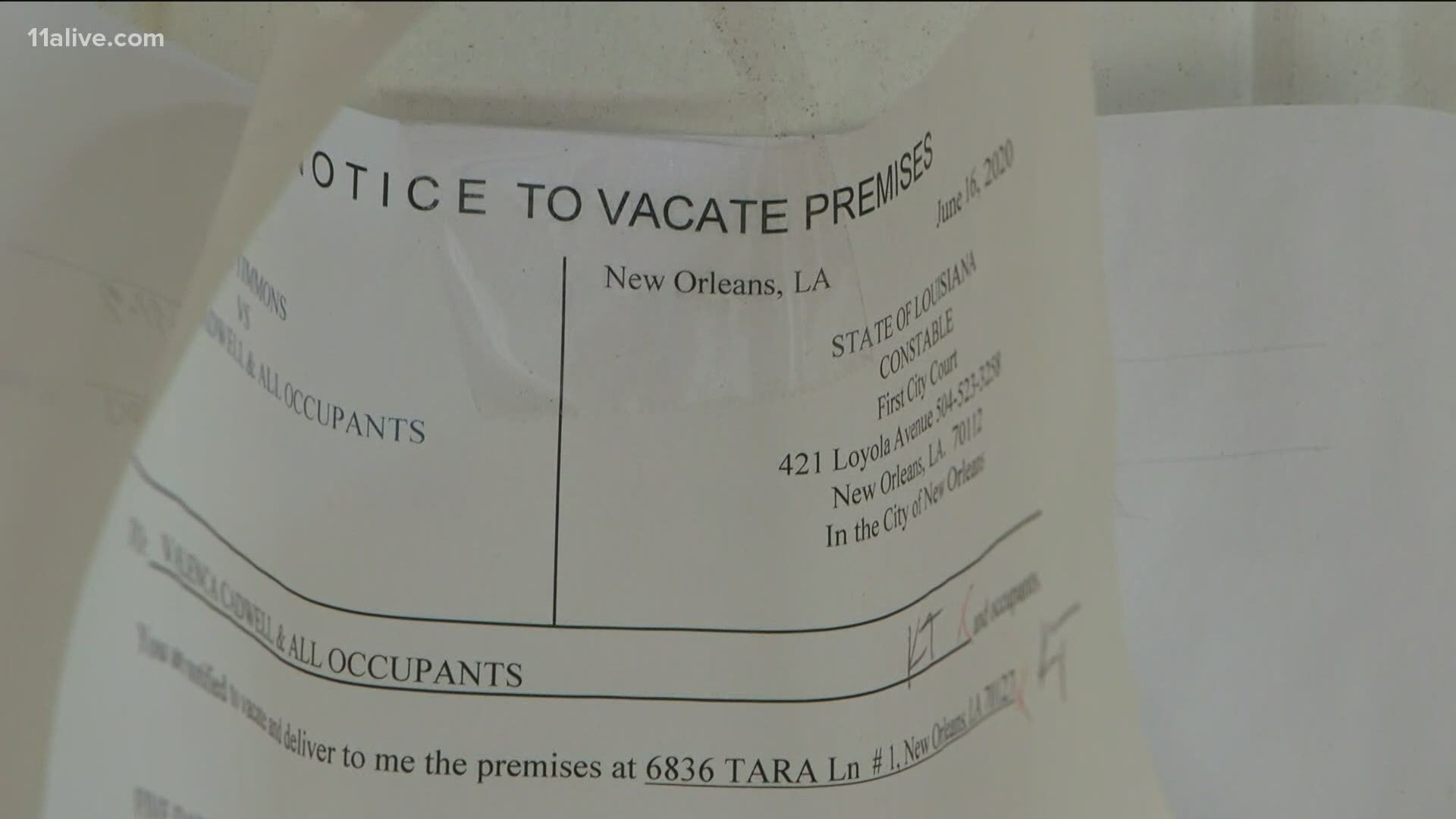ATLANTA — Sept. 4 marks the first day of the Trump administration’s new order to suspend eviction possibilities until Dec. 31.
The Centers for Disease Control and Prevention (CDC) called the order an emergency action. The Aspen Institute reports between 30 to 40 million Americans are at risk of eviction due to the pandemic.
In order to meet the order's criteria to prevent eviction, a renter must prove that they can’t “expect” to earn more than $99,000 in 2020 ($198,000 if married and filing a joint tax return), are experiencing a “substantial” loss of household income, layoff or “extraordinary” out-of-pocket medical expenses, are making the best effort to make timely partial payments, and/or that eviction would “likely” lead to homelessness or moving to a place that is more expensive or puts a renter close to others who are sick.
The order also places evictions prior to the moratorium on hold. But just because someone can’t pay rent doesn’t mean a landlord can’t evict a renter at all. Landlords can still file for eviction for criminal behavior or disruptions or destruction of property. Additionally, the order only delays evictions, it doesn’t prevent them. So, a landlord could file for eviction for non-payment once the moratorium lifts.
With that latter information in mind, renter advocates like Monica Delancy said the order doesn’t do enough to protect all renters.
“They have to show that their income was impacted significantly, remember we have people that was facing eviction before COVID hit,” said Delancy, a Cobb County-based renter’s advocate. “We need long-term solutions. We need livable wages. We need housing that is really, truly affordable.”
Delancy said the crisis is highlighting disparities among renters who struggled to make ends meet prior to the pandemic.
“People cannot pay rent on $12 an hour. People can’t do that; so now, it’s even more exposed," she said. "And people can’t go get a second job because the businesses are hurting.”
The advocate also wants people to know they should continue to pay what they can to their landlords and apartment complexes (motels and hotels are excluded from the order.)
“Please just don’t let your rent just pile up. Cause we don’t want to be looking at December and you owing $10,000, $15,000.”
According to the National Rental Home Council, “once the moratorium expires, renters will owe back rent for several months.”
Delancy hopes local governments create more partnerships with non-profits to help stabilize families and prevent evictions after the moratorium expires. As someone who was once forcefully evicted, Delancy doesn’t want any families to have to experience what she described as a “dehumanizing experience.”
“My daughter is still traumatized from that," Delancy said. "She’s still traumatized.”
Delancy also brought up families with children who now depend on the home front for a place to learn.
“If a person is evicted from their home, they’re evicted from their school as well,” Delancy said.
To prove you are eligible, use the declaration form that the CDC published on its website. After filling out the forms, email, hand-in or send them to the landlord in a way that allows you to prove the landlord received them.
Also, keep paying what you can; otherwise, a renter can risk failing the eligibility part of the test which states a renter must continue making partial payments.

